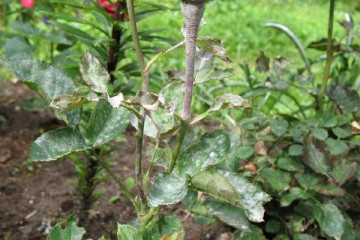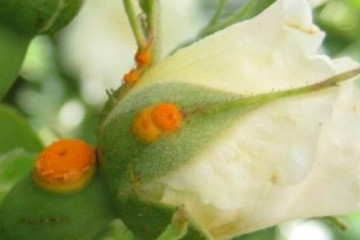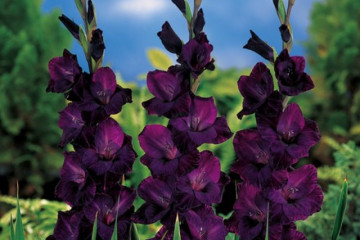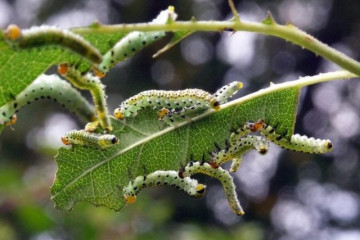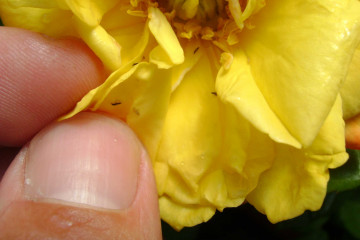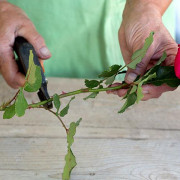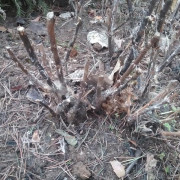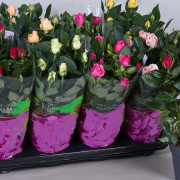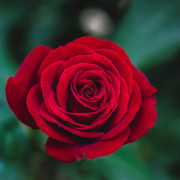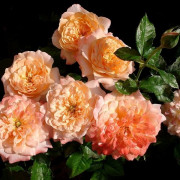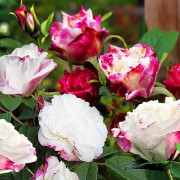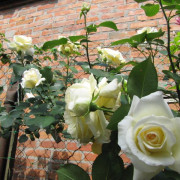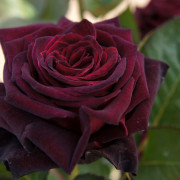Aphids on roses - how to deal with pests
Content:
- Aphids on roses - what is it, what does the problem look like
- Why aphids are dangerous for roses
- Mechanical treatment of rose bushes from aphids
- Chemical treatment method
- Professional preparations against aphids
- How to scare away aphids with nearby plants
- Beneficial insects and birds
- How to deal with aphids on roses using folk methods
- Common mistakes in pest control
- How to prevent the appearance of aphids
Every owner of the garden is waiting for June, this month the rose blooms. But what a grief awaits those who did not take care of protecting the rose from aphids in advance. You should be especially vigilant from April to May, when dry weather favors the reproduction of pests.
Aphids on roses - what is it, what does the problem look like
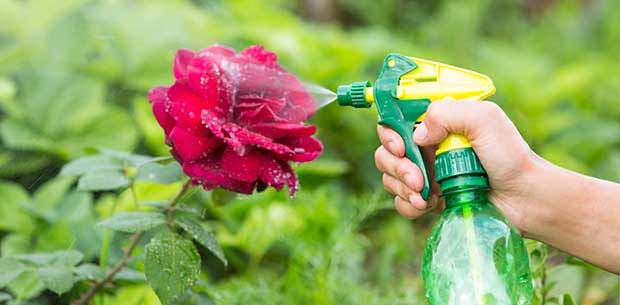
Fighting aphids can be long and painful, but rewarding.
Aphid is a small harmful insect ranging in size from 0.5 to 2.0 mm, belongs to the order of Homoptera. The color of the insect is often light green, which is why it is so difficult to spot it among the leaves. There are types of other colors: gray, orange, black.
The insect inserts its proboscis into the branch of a rose and drinks the juice. At the same time, nectar is secreted from the proboscis, which activates the reproduction of the fungus and attracts other insects.
What does a rose affected by aphids look like:
- black spots appear on the leaves;
- rose buds are deformed, fall off, not having time to dissolve
- leaves curl up, turn yellow;
- the shoots are covered with a shiny, viscous bloom, honeydew or powdery bloom (a favorite food for garden ants);
- a black sooty fungus appears on the powdery coating.
The last stage of a plant's disease is its death.
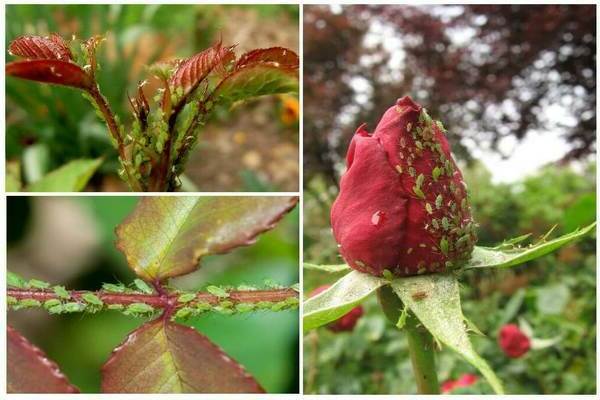
Defeat of a rose by aphids
Why aphids are dangerous for roses
The danger of aphids lies not only in their harmfulness, but in the rate of reproduction. Every 2 weeks, up to 200 new individuals appear in one female. Therefore, if urgent measures are not taken to eliminate it, then insects will destroy the garden in a matter of days.
Aphids settle on a plant at the time of its growth. She is much more fond of young branches and blossoming leaves and buds. At the moment of active growth of shoots, they contain more juice. Another danger of aphids is their ability to carry other phytopathogenic viral infections.
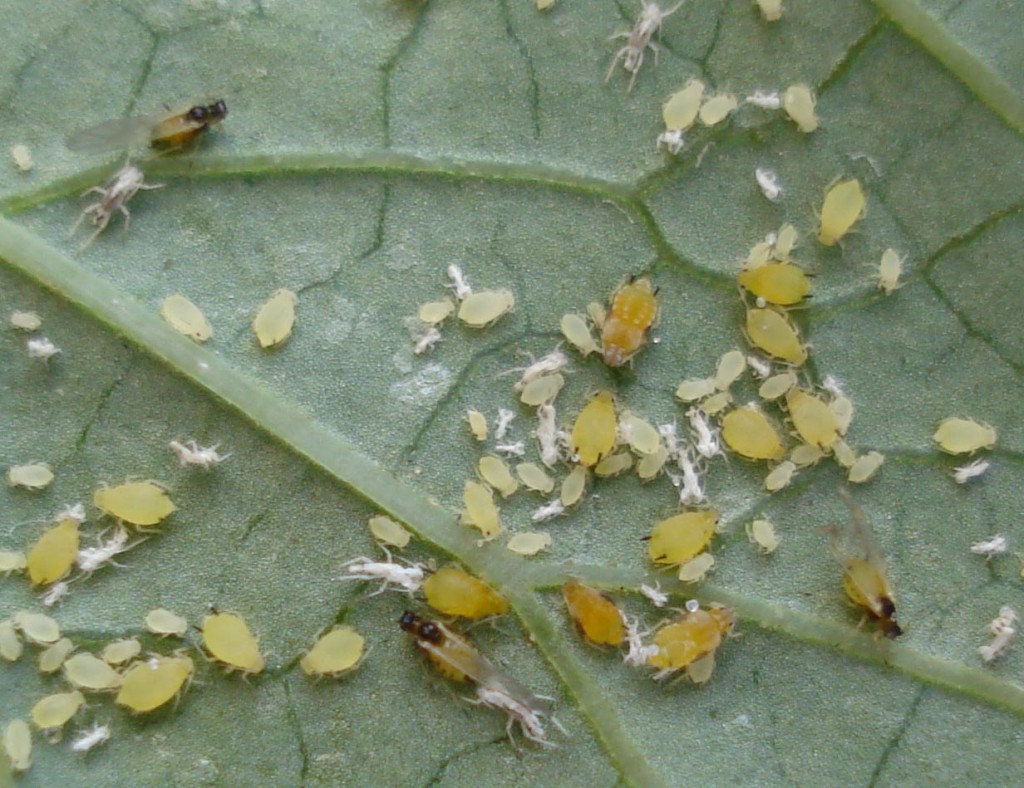
The number of aphids can increase dramatically overnight.
Mechanical treatment of rose bushes from aphids
Machining is more of a mandatory measure than a method. It would be more correct to say that this is the first stage in the fight against aphids.
Aphids on roses - how to deal with the mechanical method:
- Hand picking insects. If there are few pests, then they should not be thrown off the leaves, but squeezed. If insects are found on the buds, then it is wrapped in a hand and wiped from bottom to top.
- Washing off insects with a stream of water. You can use running water, or you can mix a special solution.
If, after mechanical treatment of the shrub, aphids remain, then it will be possible to kill it only with the help of chemicals.
Chemical treatment method
The question arises, when was the green aphid found on the roses, how to process it, if it reproduces at a cosmic speed? Flowering chemicals are used as a last resort. Treating a rose with poison will allow the plant to survive, but in the current season it is forbidden to come close to the flower, and even more so to inhale its aroma.Rose petals cannot be used for cosmetic purposes. Chemicals must be diluted strictly according to the instructions on the packaging.
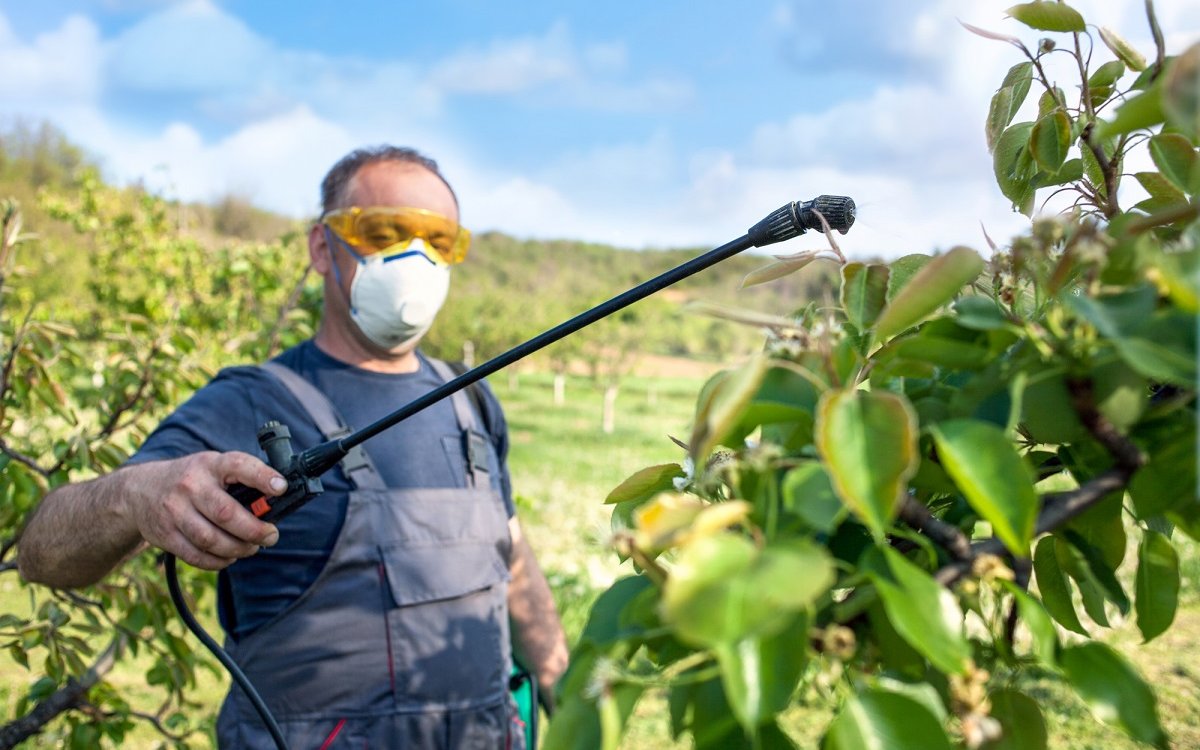
Work must be carried out strictly in a protective mask
Aphids are a rather tenacious insect, so the new offspring quickly adapts to aggressive influences. The same happens in a person who takes antibiotics for a long time, after which the bacteria develop resistance. That is why chemicals will need to be alternated. In this case, one should pay attention to the active substance, and not to the trade name.
Scheme of integrated control of aphids:
- mechanical restoration;
- pesticide treatment;
- processing with natural ingredients.
Professional preparations against aphids
All chemicals differ in duration, speed, and effectiveness. It is advisable to use poison only when the pests have affected most of the garden plants and began to switch to fruit and berry crops. In other cases, it is better to sacrifice a couple of shrubs than to endanger your health.
List of the best remedies
If aphids appeared on roses, how to treat its leaves from the range of chemical insecticides? Well proven:
- "Tsvetolux";
- Tanrek;
- Biotlin;
- Calypso Spray;
- "Decis";
- Aktara;
- Floristin;
- Kinmix;
- Fitoverm;
- Iskra Zolotaya;
- "Antiklesch Max";
- Inta-Vir;
- "Fufanon";
- "Karbofos";
- "Decis-Profi";
- Actellik.
These are the most popular and effective drugs that can remove aphids, but they will need to be used twice, or even three times. There is no magic pill that can remove parasites in one go.
Disadvantages of chemical treatment of rose bushes
The main disadvantage is the inability to use the plant in cosmetology or food after processing it with chemicals. Under the influence of the poison, the rose will most likely lose its smell, and the dead buds will no longer be able to recover.
Why does rose use become dangerous after processing? Chemical preparations work in such a way that they penetrate into every cell of the plant, they are inside, so they cannot be washed off. The complete removal of the toxic substance from the shoots occurs in about 3-4 weeks.
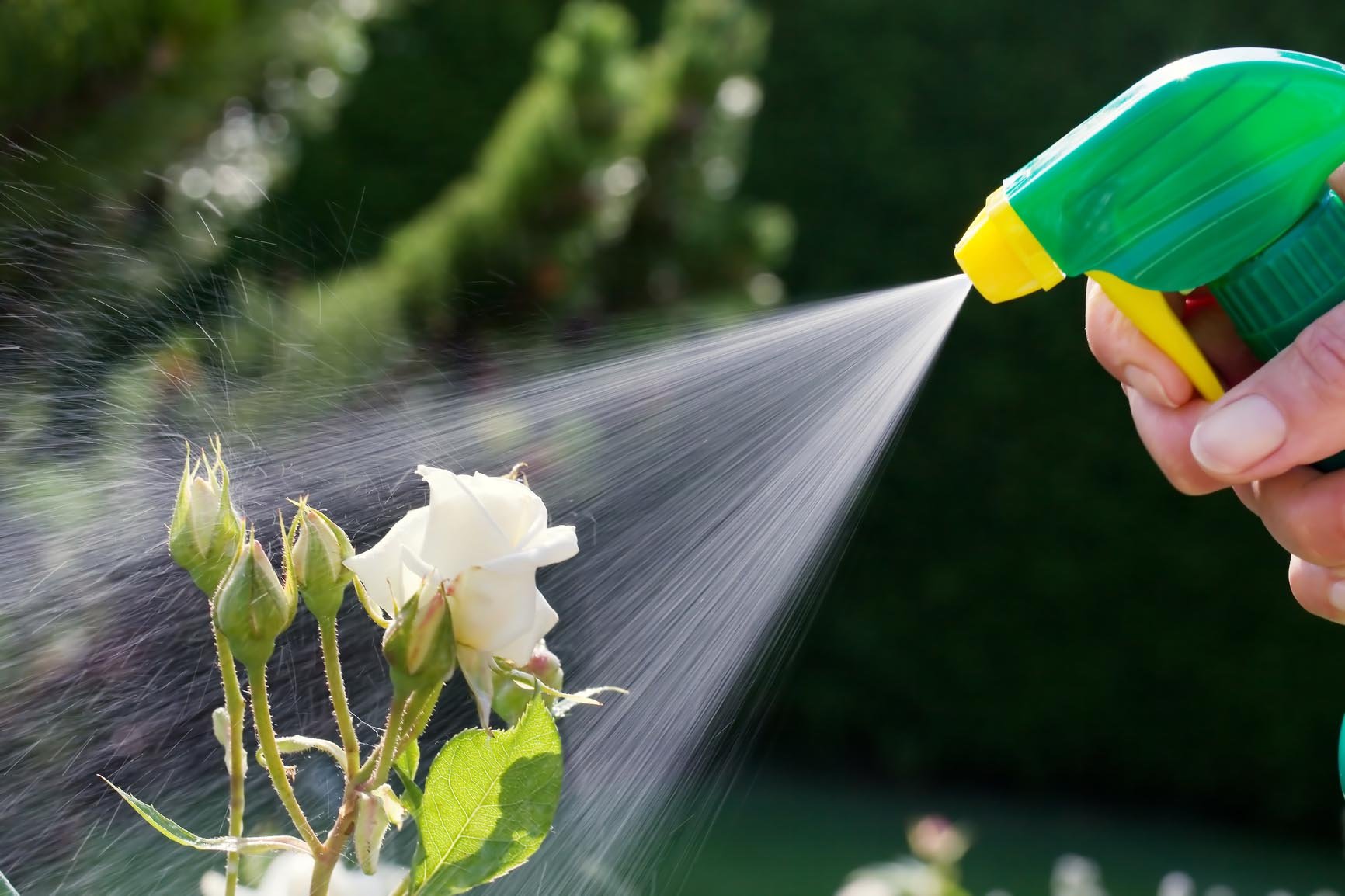
After treating the rose with chemistry, you can not lean against it and inhale the aroma
How to scare away aphids with nearby plants
Aphids are afraid of strong odors, so plants planted nearby with a pronounced aroma will scare away insects.
Near roses you can plant:
- bow;
- chives;
- garlic;
- coriander;
- fennel;
- mustard;
- marigold.
This does not mean that you should plant a rose in a circle of garlic, it is enough to have a bed of these plants within a few meters.
Beneficial insects and birds
Aphids are not poisonous to birds and insects, so they need to be brought into the garden to control pests.
Natural enemies of aphids:
- weevil bugs;
- ladybugs;
- aphid lion;
- lacewing;
- ground beetles;
- earwigs;
- hoverflies.
Ladybugs and hoverflies have long been considered the orderlies of vegetable gardens and garden plots, since aphids are their main food. Not only adults eat pests, but even their larvae. One hoverfly larva can eat up to 200 aphids per day.
Beetles arrive and settle on carrots, dill, fennel, garden buckwheat. Bright flowers, especially yellow and orange, will help attract the attention of the orderlies. It is recommended to plant calendula, sweet clover, thyme, marigolds, lavender.
Undoubtedly, a bird can eat more aphids than a small bug. Therefore, on the site it is worth hanging feeders or building a birdhouse. In order for earwigs to settle in the yard (the main consumers of aphids), you can arrange boxes with wood shavings.
How to deal with aphids on roses using folk methods
You can get rid of aphids with the help of an infusion or a decoction of insecticide herbs: potato tops, onion heads, chamomile, hogweed, larkspur, cloves of garlic, aconite, datura, Japanese sophora, tobacco, celandine, yarrow, but such methods are more likely to scare away insects than to destroy them.
You need to make a solution based on the following proportions: 250 grams of grass per 1 liter of water. The mixture is cooked for half an hour and infused for 3 days with the lid closed. You need to spray with an infusion diluted with water in a ratio of 1: 3. To make the infusion better adhere to the leaves, shavings of brown laundry soap are added to it.
Soap solution (5 tablespoons per 1 liter of water) or ash solution (400 grams of ash per 10 liters of water) will also help get rid of insects. Soda will help to save the rose: 3 tbsp is taken in a bucket of soapy water. spoons of soda. It is necessary to process the rose once a week until the pests are completely destroyed.
Aphids do not tolerate the smell of ammonia, so 2 tbsp. tablespoons of ammonia must be diluted in 10 liters of water, add soap shavings and spray the shoots with this solution. Mustard powder also has a pungent smell, 200 grams per bucket of water is enough to remove parasites.
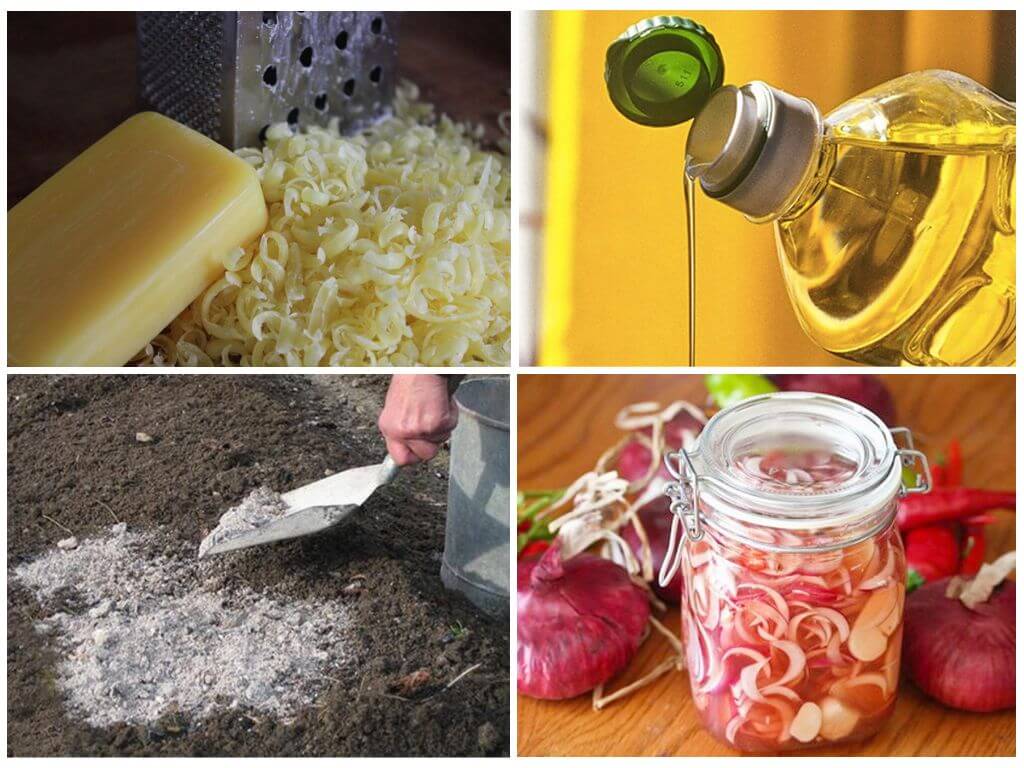
Home methods are effective when the number of aphids does not pose a risk to the entire garden, but is estimated at several dozen individuals on the bush.
Common mistakes in pest control
In order not to ruin the rose, it is important to avoid the following mistakes:
- Failure to comply with the instructions for preparing the solution. It is not only the dosage that matters, but also the observance of the frequency of application, that is, the need to re-spray after a certain number of days.
- Plants are sprayed only from above. This does not take into account the fact that aphids are located on the lower part of the sheet.
- Later attention to the problem. Preventive treatment and inspection of leaves should be carried out throughout the growing season.
- Spraying plants in windy weather during the day. Work should be carried out in the evening, when the pores on the leaves open.
- The use of folk remedies for multiple infections.
- Lack of theoretical knowledge about the methods of exposure to biological and chemical products. The former begin to work 3 days after treatment, the latter act instantly, but are poisonous to humans as well.
How to prevent the appearance of aphids
In order to prevent the death of roses, it is necessary to carry out preventive examinations of the leaves. The sooner a problem is identified, the easier it will be to deal with it. In order for the rose to have high immunity, pruning of dry and diseased shoots, as well as faded buds, must be carried out in time.
Once a month, shoots should be washed with soapy water. It will help prevent the appearance of harmful insects and dry ash poured around the rose bush.
If you do not spare the time and take preventive measures in time, then the rose will certainly thank you for its lush flowering and exquisite aroma.

